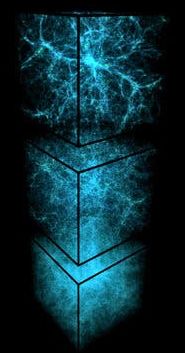Scientists suggest that a counter-intuitive, hypothetical species of black holes may negate the standard model of cosmology, where dark energy is an inherent and constant property of spacetime that will result in an eventual cold death of the universe. “It’s the big elephant in the room,” says Claudia de Rham, a theoretical physicist at Imperial College London about dark energy, the mysterious, elusive phenomena that pushes the cosmos to expand so rapidly and which is estimated to account for 70% of the contents of the universe. “It’s very frustrating.”
Generic Objects of Dark Energy
Astronomers have known for two decades that the expansion of the universe is accelerating, but the physics of this expansion remains a mystery. In 1966, Erast Gliner, a young physicist at the Ioffe Physico-Technical Institute in Leningrad, proposed an alternative hypothesis that very large stars should collapse into what could be called Generic Objects of Dark Energy (GEODEs). These appear to be black holes when viewed from the outside but, unlike black holes, they contain dark energy instead of a singularity.
